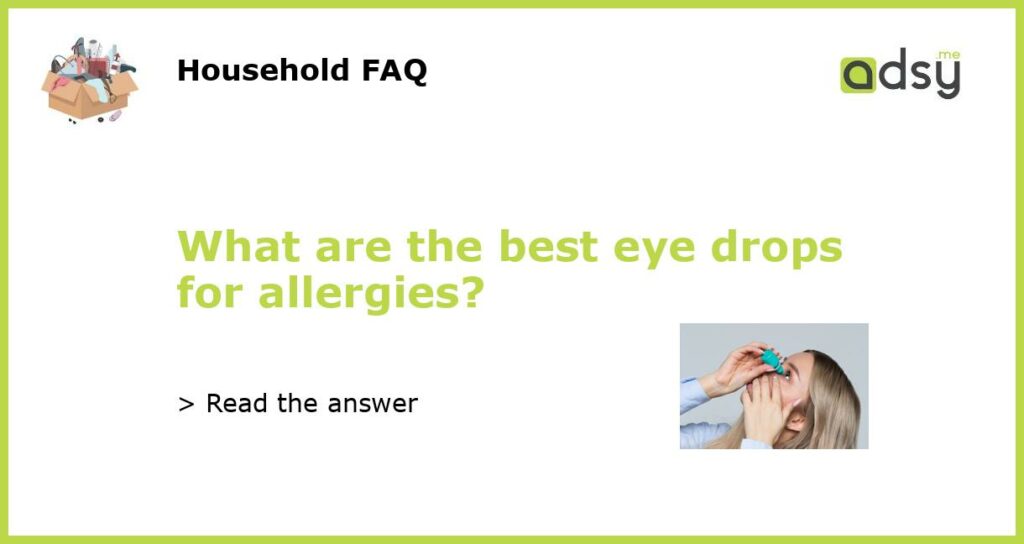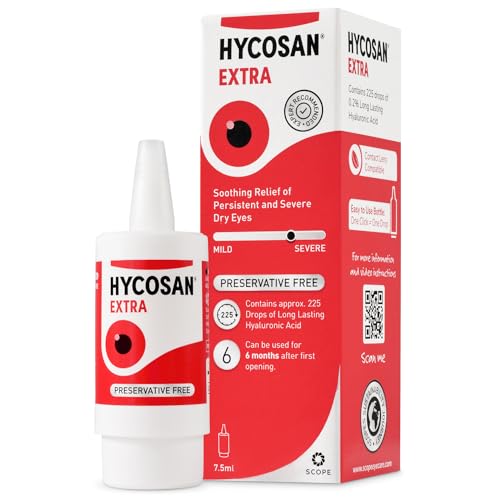The importance of choosing the right eye drops for allergies
Allergies can cause uncomfortable symptoms such as itchiness, redness, and swelling in the eyes. One way to relieve these symptoms is by using eye drops. However, not all eye drops are created equal. It’s important to choose the right eye drops for your specific allergy symptoms to get the best results.
Types of eye drops for allergies
There are several types of eye drops for allergies, including antihistamine eye drops, mast cell stabilizer eye drops, and combination eye drops.
Antihistamine eye drops work by blocking the release of histamine, which is responsible for allergy symptoms. Mast cell stabilizer eye drops work by preventing the release of histamine and other chemicals that cause allergy symptoms. Combination eye drops contain both antihistamines and mast cell stabilizers for maximum relief.
Choosing the best eye drops for your symptoms
When choosing eye drops for allergies, it’s important to consider your specific symptoms. If you have mild to moderate allergy symptoms such as itching or redness, antihistamine eye drops may be a good choice. If you have more severe symptoms such as swelling or discharge, mast cell stabilizer eye drops may be more effective.
It’s also important to look for preservative-free eye drops if you plan on using them frequently, as preservatives can irritate the eyes with prolonged use.
Top recommended eye drops for allergies
One of the top recommended antihistamine eye drops for allergies is Alaway. This eye drop is available over-the-counter and provides fast-acting relief for itchiness and redness caused by allergies.
One of the top recommended mast cell stabilizer eye drops for allergies is Pataday. This eye drop is prescription-only and provides long-lasting relief for moderate to severe allergy symptoms.
When to see a doctor
If your allergy symptoms persist or worsen despite using eye drops, it’s important to see a doctor. They may recommend prescription-strength eye drops or other treatments for your allergies.






